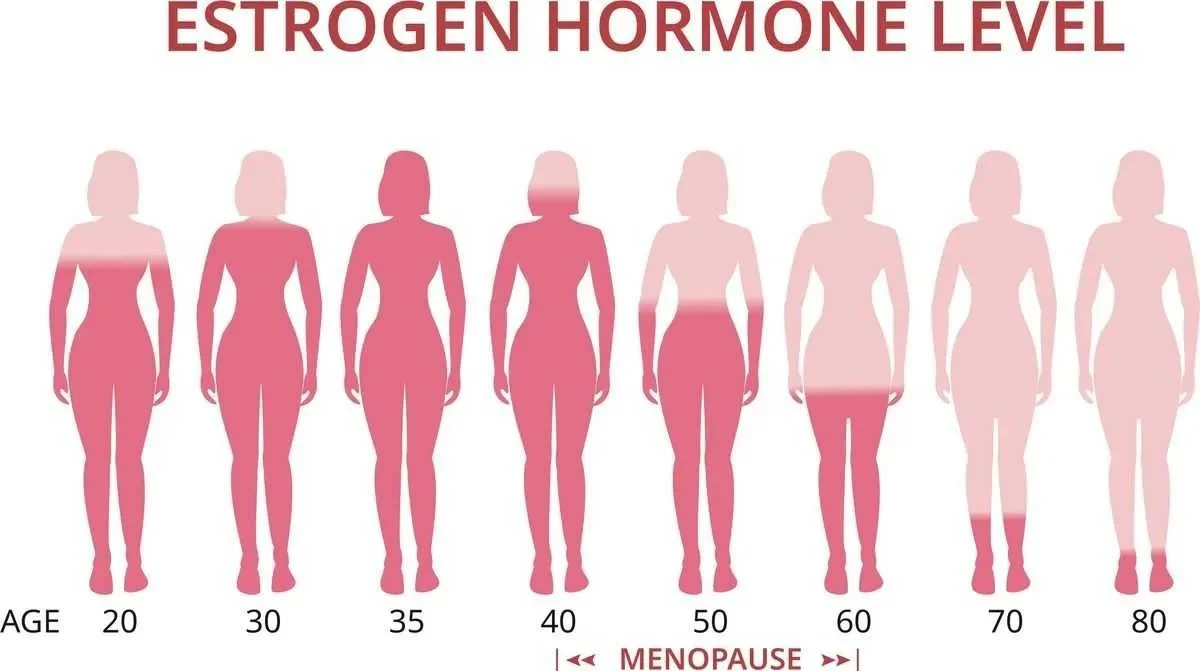What the hell is happening to me?
(AKA: What Really Happens to Your Body in Perimenopause and Menopause)
“I was chairing a board meeting—confident, prepped, polished. Until suddenly, I wasn’t.
My heart started racing. My cheeks went red-hot like I’d been caught doing something naughty. I blinked at my notes, completely blanking on what I’d just said. I cracked a joke, fanned myself with the board pack, and tried to carry on—but inside, I was rattled. Was I anxious? Over-caffeinated? Losing it?”
No. This client was perimenopausal. Though at the time, she had no idea.
Sound familiar?
If you’re a busy professional woman, juggling work, teams, client calls, school drop-offs, elder care, and a partner who still can’t find the olive oil—it’s easy to dismiss your body’s signals. But if you’ve been feeling “off” and can’t quite explain why, there’s a good chance your hormones are whispering (or shouting), “Hey, things are changing.”
So what is actually going on?
What’s Really Going On In There?
Perimenopause: The Hormonal Rollercoaster
Perimenopause is the lead-up to menopause. It can start in your 40s—or even late 30s—and last several years. Think of it as hormonal puberty in reverse. Just like in puberty, your 3 key hormones are starting to shift.
Here’s what’s happening:
Oestrogen goes haywire: The hormone that is in play for the first two weeks of your cycle before you release your egg. Some days it’s sky-high, other days it plummets. This creates mood swings, sore boobs, heavy periods, and a general feeling of “Who even am I today?”
Progesterone quietly declines: This calming, sleep-supporting hormone that is in play in the second half of your cycle often drops first. Without enough of it, you might feel wired but tired, anxious, or emotionally fragile—even if you’re usually rock-solid.
Testosterone dips too: Not just about sex drive, testosterone also helps with energy, muscle mass, and confidence. When it wanes, you might feel a bit flat, soft, or just not quite “you.”
So, what shows up in real life?
Your periods get weird: heavier, lighter, closer together, further apart—or all of the above.
You can’t sleep like you used to.
You forget words mid-sentence or wonder why you're in the pantry.
You’re snapping at your partner/kids/dog for breathing too loudly.
You look at food and gain weight, especially around your middle.
It's confusing, and sometimes it makes you doubt yourself. But here’s the truth: this isn’t weakness. This is biology.
Menopause: The Full Stop
Menopause is officially the moment you’ve gone 12 months without a period. It’s not a day you can mark in your calendar—it’s usually confirmed in hindsight.
At this point:
Oestrogen and progesterone are low and stay there.
Your body is recalibrating to life without the hormones that ran the show for decades.
In the cons column, this shift can bring:
Vaginal dryness, changes in libido, or pelvic discomfort
Ongoing brain fog, joint stiffness, or sleep struggles
Changes in skin, hair, or body composition
Increased risk of osteoporosis and heart disease (not fun, but manageable when you know)
But there’s good news. Menopause is not the end. It’s a transition. And like any big transition—career change, parenthood, launching a business—it’s messy at times, but full of potential.
In the pros column, this shift can bring:
Freedom from periods, planning around them and even the purchase of tampons, pads and underwear.
Freedom from reproductive energy drains - all that energy focused on getting ready to have babies is now available to you and only you! What will you do with it?
A time for re-invention - We now live to around 80 and so menopause can be midlife. So in this second act, you can focus on what truly brings you joy!
You’re Not Broken, You’re Evolving
If any of this rings true for you, take a breath.
This is not in your head. It’s in your hormones. And it’s happening to every woman—just not all at the same time or in the same way. You’re not less capable, less sharp, or less valuable. You’re just recalibrating and becoming a wiser, wilder, stronger version of yourself.
And once you understand what’s going on, you can make choices that help—not fight—your body. That’s what we’ll explore in this blog series: real stories, clear science, and practical things you can do to feel like yourself again (maybe even better).
Keep an eye out for these on my social channels or just subscribe below and they will appear in your inbox each week.
Put the mask on you first, work with your body not against it through menopause and thrive again!
Subscribe now to get these blogs delivered direct to your inbox and get your FREE Top Sleep Tips PDF.




